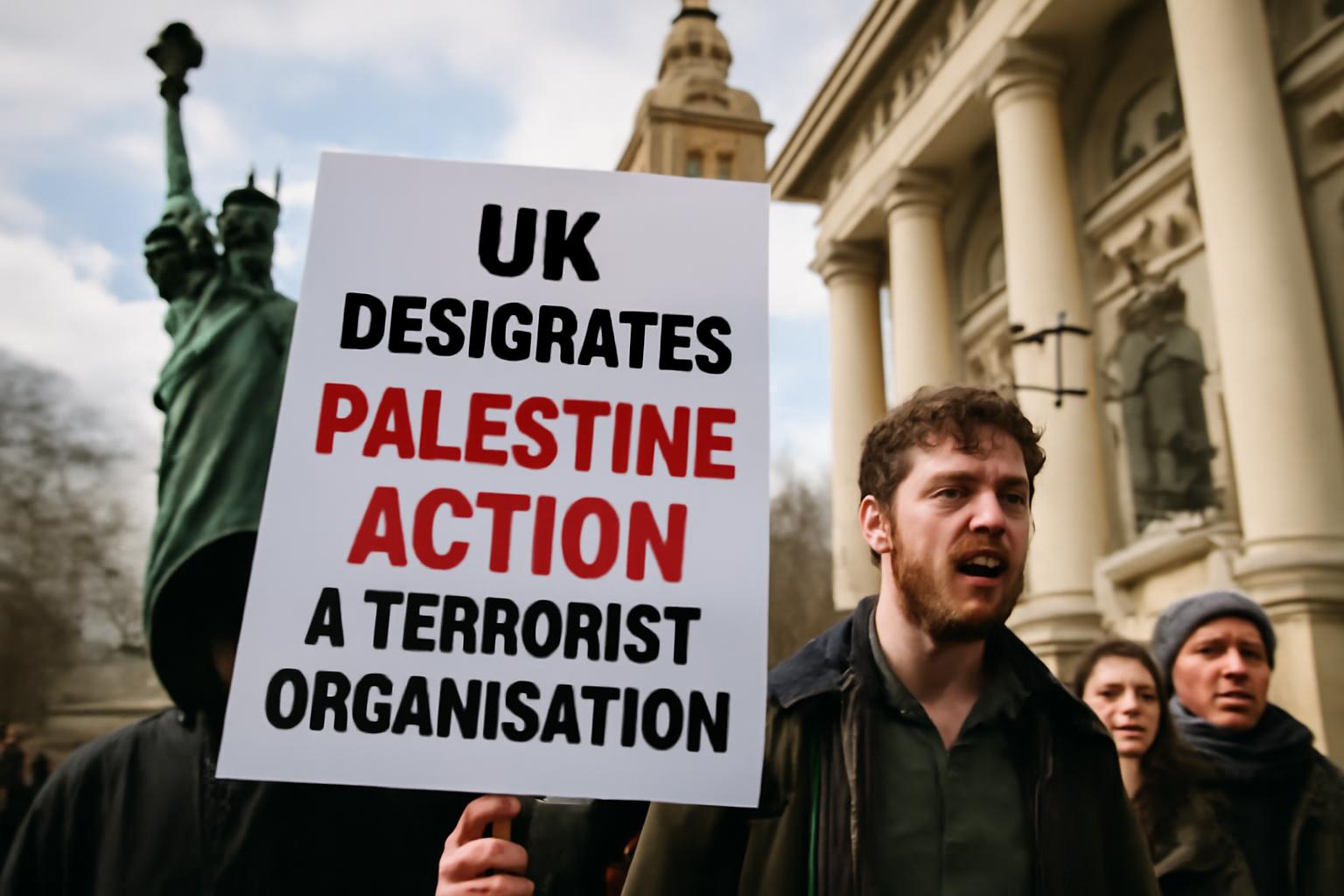London has seen protests erupt after the government designated Palestine Action as a terrorist organisation under the UK’s terrorism laws. Membership or support is now a crime punishable by up to 14 years in prison, and police reported hundreds of arrests for “supporting a banned organisation” along with additional arrests for other alleged offences, including assaults on officers. The government says the action targets violent acts, not Palestinians or the right to protest; Palestine Action accuses Israel of genocide in Gaza and claims Britain’s arms industry is complicit, noting a prior paint attack on British military aircraft. Amnesty International condemned the police’s actions as arresting peaceful demonstrators and violating the UK’s international obligations to protect freedom of expression and assembly.
What is happening challenges the very premise of a free society. The state, in its anxious zeal to shield itself from danger, reaches for the blunt instrument of criminal law to decide who may speak, march, or lend support to a cause. To ban an organisation and criminalise its supporters is not merely a procedural matter of security; it is a fundamental redefinition of the public square. It substitutes the ruler’s judgment for the marketplace of ideas, where truth is supposed to be tested and errors corrected through debate, dissent, and the competing arguments of many voices.
We are told this is about violence, not protest, yet the effect is the same: the administrative power to brand a group as dangerous and then to chill what people may say or do in its name. The danger lies not only in punishing wrongdoers but in criminalising associations and sympathies that, even when misguided or controversial, belong to the realm of opinion and allegiance protected in law. Free societies do not survive by sealing themselves off from contested ideas; they survive by exposing those ideas to scrutiny and by aligning power with the narrow, clearly defined boundaries of law, not with the flexible, politically convenient categories of “us” and “them.”
The proper response to violence is law – precise, public, and evenly applied – not the erasure of civil liberties in the name of security. If there are legitimate acts of wrongdoing, they must be pursued through due process and targeted measures, not through sweeping bans that deter all manner of dissent and associate it with criminal intent. To inflame the public by painting a whole movement as criminal undermines the very preconditions of a liberal order: the freedom to argue, to protest, to alienate, and to persuade through persuasion rather than coercion.
Amnesty’s critique should be weighed not as a political inconvenience but as a reminder that the strength of a free polity rests on the protection of expression and assembly, even when voices are uncomfortable or inconvenient. If there is a genuine grievance—humanitarian concern for Gaza, accountability for arms—let it be argued in open debate, tested by public reason, and, if necessary, punished by law where crimes are proven, not by labeling movements as inherently illegitimate and sweeping them into the shadows of prohibition.
In the final accounting, the state’s authority to maintain order must never eclipse its duty to preserve the conditions of liberty that make social order intelligible. The rule of law must remain the sovereign restraint on power, not a convenient cover for suppressing dissent. Only through a robust, open contest of ideas, and through laws that apply equally to all, can a society hope to temper fear with wisdom and pursue justice without surrendering its most cherished freedoms.
